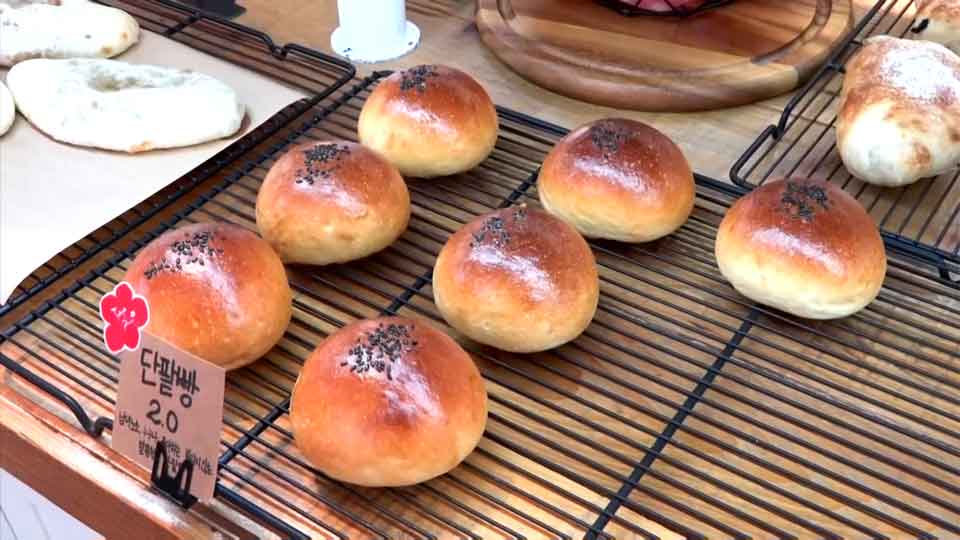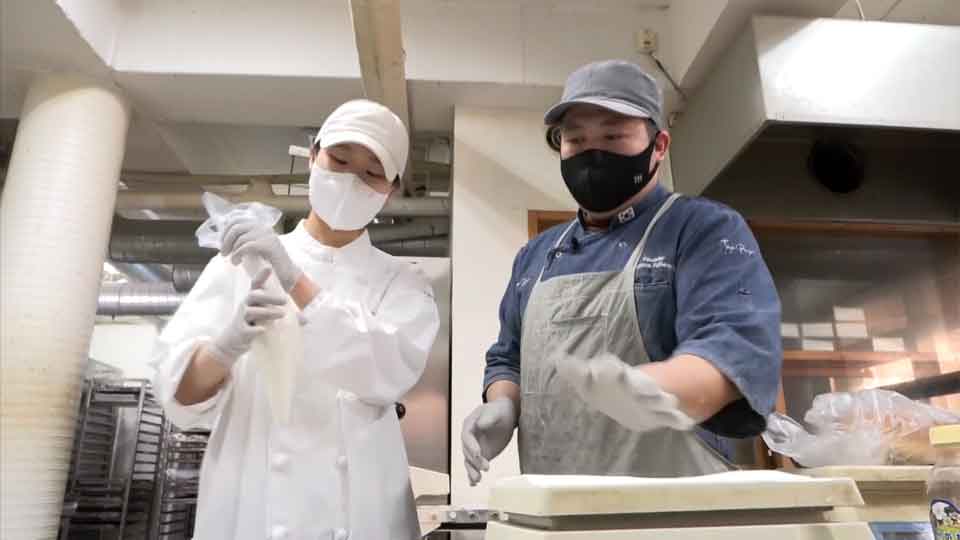Fujiwara Yasuma opened Tokyo Panya in Seoul about 15 years ago. The bakery grew into a successful franchise, providing South Koreans with an authentic taste of Japan.
Specialty items include sweet and savory breads, and others with more unique fillings, like noodles and shrimps.
Fujiwara has always felt a deep sense of satisfaction when people say the products taste just like those in his homeland.
“Nothing makes me happier,” he says, “than to hear how my customers are growing to like Japan through our bread.”
Fujiwara’s concept proved so popular that he was able to expand. At one point, there were more than 20 Tokyo Panya bakeries across South Korea.

Fallout from court case hurts business
But things soured in 2018, when a Seoul court case provoked protests over a key difference in how Japanese and South Koreans perceive aspects of World War Two. The tensions spilled over into trade.
Japan’s government tightened controls on exports to South Korea in 2019. Seoul deemed the move to be a countermeasure to the court ruling, and a boycott of Japanese products ensued across the country.
That affected businesses big and small. Fujiwara’s sales were cut in half, and he says there were days with almost no customers.
“There were franchise owners who told me to change the name of our shop, saying they don't want the word Tokyo in there,” he says. He adds that he had no idea what to say about the boycott, as he didn't want to make things worse.
The problem was compounded by management issues. Almost all the stores were forced to close, and Fujiwara even stepped down from his position.
Election could herald turning point
He was back to square one, but at least his spirits were undimmed.
Fujiwara now works for Koo Ja-young, the owner of one of the surviving franchises. Koo believes Fujiwara’s presence can help revive Tokyo Panya.

The election frontrunners have promised to improve ties with Japan, and Fujiwara is optimistic. He believes the next president will find a way to ensure politics don't hinder people's lives.
“I hope bilateral relations will improve. Becoming friendly is the best option,” he says. “But if ties do worsen again, I hope there will not be another boycott. It shouldn't affect ordinary people like us.”
Watch video: 03:43
For now, Fujiwara will focus on doing what he does best – introducing Japanese culture to South Koreans, and giving their taste buds something to smile about.

